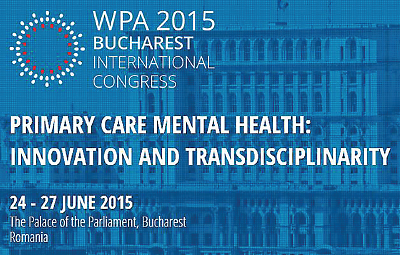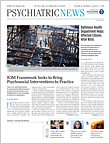The World Psychiatric Association (WPA) adopted a statement in June calling on United Nation (UN) member states to move toward collaborative and integrated mental health care as a means of “achieving total health for all in the 21st century.”
The statement was approved by a unanimous vote of the WPA executive committee during the WPA 2015 International Congress in Bucharest, Romania. In it, the association describes the global burden of mental disorders, which often appear in youth and are largely treated in primary care settings.
The statement notes that “the collaboration and integration of primary care, mental health, and public health is proven to enhance access, quality, and sustainability” and urges the inclusion of collaborative and integrated care in the updated UN Sustainable Development Goals. The statement also requests that UN member states “allocate the necessary human, financial, and technological resources for training, education, and implementation of this resolution.”
“This is a great positive step, and I trust it will have an impact,” said former APA President John McIntyre, M.D., a clinical professor of psychiatry at the University of Rochester, who was part of a large U.S. delegation that attended the meeting. “Its real value is to serve as a bully pulpit to emphasize the importance of integrated and collaborative care, which is being pushed for in both psychiatric and general medical circles.”
The Bucharest statement had its roots in the work APA has done in recent years in addressing integrated care, said Eliot Sorel, M.D., a clinical professor of global health and of psychiatry and behavioral sciences at George Washington University and co-chair of the Bucharest Congress’s scientific committee.
“In 2015, our goal was to bring this focus on access out from the realms of academic and clinical medicine to influence policy,” Sorel told Psychiatric News.
Sorel is optimistic that policymakers will respond positively to collaborative and integrated care, largely because it may help reduce costs over time.
“There are economic and social consequences of attending to or not attending to mental health,” said Sorel. An Organization for Economic Co-operation and Development (OECD) study found that 30 to 45 percent of disability payments in OECD countries were due to mental disorders.
“We must not only advocate to policymakers but also within the medical profession,” he said. “One stumbling block is that there is no financial formula to pay for care by an integrated team.”
Also, collaborative training must begin much earlier. The medical education system should stress at its beginning the integration and collaboration among general medical health, mental health, and public health, he said.
The statement was indeed significant, but perhaps more so was the fact that colleagues from many countries got together and discussed collaborative and integrated care, said former APA President Michelle Riba, M.D., M.S., a professor and associate chair for integrated medicine and psychiatric services at the University of Michigan, who attended the conference.
“Many people need care but there are not enough psychiatrists to provide it,” Riba told Psychiatric News. “To expand access, we need to work with our colleagues in primary care. That will demand changing not only clinical care but also training and research.”
Besides Sorel and former APA presidents McIntyre, Riba, and Paul Summergrad, M.D., other American participants in the conference included the former National Medical Association President Rahn Bailey, M.D., and APA CEO and Medical Director Saul Levin, M.D., M.P.A. ■
The WPA Bucharest Statement on Collaborative and Integrated Care can be accessed
here.

